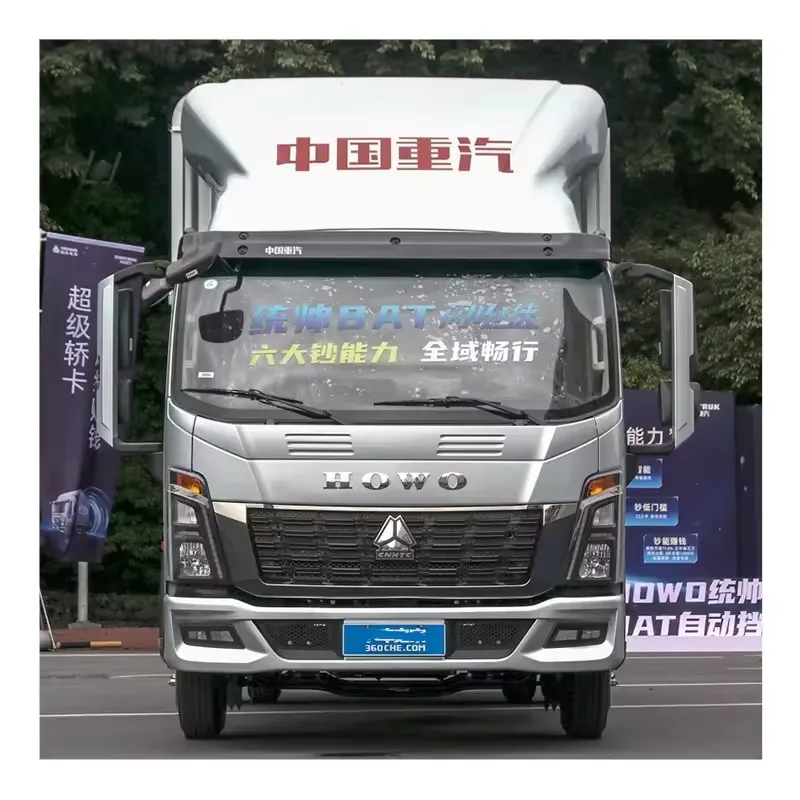24-D10, Building 3, Aosheng Building, Shunhua Road Street, Jinan, Shandong, China +86 13969167638 [email protected]
The success of any logistics operation hinges significantly on the quality and suitability of its cargo trucks. As global supply chains become increasingly complex, selecting the right vehicles for your fleet requires careful consideration of multiple factors. Making informed decisions about cargo trucks can mean the difference between operational excellence and costly inefficiencies that impact your bottom line.
Today's logistics managers face a transforming industry landscape where fuel efficiency, sustainability, and technological integration play pivotal roles alongside traditional considerations like payload capacity and durability. Understanding these elements in depth ensures that your investment in cargo trucks aligns perfectly with your operational needs and future growth plans.
When evaluating cargo trucks, engine specifications deserve primary attention. Modern diesel engines offer various power outputs, typically ranging from 280 to 600 horsepower, depending on the intended application. The key is finding the sweet spot between having sufficient power for your loads and maintaining optimal fuel efficiency.
Advanced engine technologies in contemporary cargo trucks include improved thermal management systems, sophisticated injection systems, and aerodynamic designs that significantly reduce fuel consumption. These features not only lower operational costs but also help meet increasingly stringent environmental regulations.
The maximum payload capacity of cargo trucks directly influences operational efficiency and cost-effectiveness. Consider not just the gross vehicle weight rating (GVWR) but also the cargo volume capacity. Modern cargo trucks offer various body configurations, from standard boxes to specialized units designed for specific cargo types.
Dimensional considerations should include loading dock compatibility, route restrictions, and maneuverability requirements. The trend toward high-cube cargo trucks reflects the growing demand for maximum volume efficiency, particularly in e-commerce logistics.

Modern cargo trucks come equipped with sophisticated safety features that protect both drivers and cargo. These include electronic stability control, automatic emergency braking, lane departure warning systems, and adaptive cruise control. Such features not only enhance safety but can also reduce insurance costs and improve driver retention rates.
The integration of collision mitigation systems in cargo trucks has shown to reduce accident rates significantly. These systems use radar and camera technology to monitor surrounding traffic and road conditions, providing drivers with crucial assistance in potentially dangerous situations.
Today's cargo trucks serve as mobile data centers, generating valuable operational insights through sophisticated telematics systems. These systems monitor vehicle performance, fuel efficiency, driver behavior, and maintenance needs in real-time, enabling proactive fleet management decisions.
Integration capabilities with existing fleet management software should be a key consideration. Modern cargo trucks should support seamless data transmission and analysis, allowing for optimization of routes, maintenance schedules, and fuel consumption patterns.
The long-term cost implications of cargo trucks extend far beyond the initial purchase price. Regular maintenance intervals, parts availability, and service network coverage significantly impact operational costs. Modern trucks often feature extended service intervals and improved component durability, reducing downtime and maintenance expenses.
Consider the manufacturer's warranty terms and the availability of authorized service centers in your operational areas. Some manufacturers offer comprehensive service packages that can be included in the purchase price, providing better cost predictability.
The residual value of cargo trucks plays a crucial role in the total cost of ownership calculation. Factors affecting resale value include brand reputation, maintenance history, and market demand for specific configurations. Some manufacturers maintain higher resale values due to their proven reliability and strong market presence.
Planning the optimal replacement cycle for cargo trucks requires balancing maintenance costs against depreciation rates. Modern fleet management strategies often incorporate predictive analytics to determine the most cost-effective time to replace vehicles.
With increasingly strict environmental regulations, ensuring cargo trucks meet current and future emission standards is crucial. Many regions are implementing progressively stringent requirements for commercial vehicle emissions, making it essential to consider trucks that exceed current standards to future-proof your fleet.
Alternative fuel options and hybrid powertrains are becoming more prevalent in cargo trucks. These technologies can offer significant environmental benefits while potentially qualifying for government incentives or meeting specific customer sustainability requirements.
Beyond emission standards, modern cargo trucks incorporate various features supporting sustainable operations. These include aerodynamic improvements, low-rolling-resistance tires, and energy-efficient auxiliary systems. Such features contribute to reduced environmental impact while often delivering operational cost savings.
Consider how your choice of cargo trucks aligns with your organization's sustainability goals and customer expectations. Many businesses now factor environmental performance into their supplier selection criteria, making sustainable fleet operations a competitive advantage.
The optimal replacement cycle for cargo trucks typically ranges from 4 to 7 years, depending on factors such as annual mileage, operating conditions, maintenance costs, and residual value. Regular analysis of vehicle performance data and maintenance records helps determine the most cost-effective replacement timing for your specific operation.
Euro 6 cargo trucks offer significantly reduced emissions compared to Euro 5 vehicles, particularly in terms of nitrogen oxides (NOx) and particulate matter. They typically incorporate more advanced emission control systems, including selective catalytic reduction (SCR) and diesel particulate filters (DPF), leading to cleaner operation but potentially higher maintenance requirements.
Alternative fuel cargo trucks, including electric, natural gas, and hydrogen fuel cell vehicles, are becoming increasingly viable options. The decision should be based on factors such as operational requirements, infrastructure availability, total cost of ownership, and environmental goals. Many operators are beginning with pilot programs to evaluate these technologies in their specific applications.